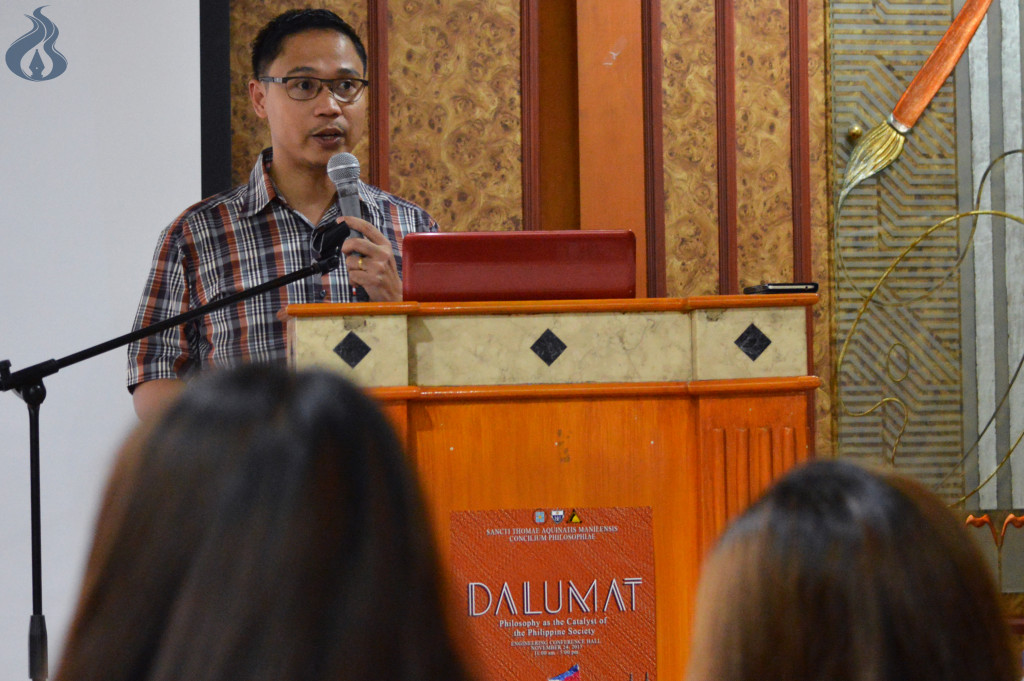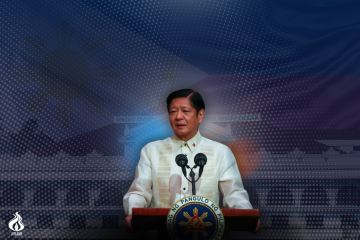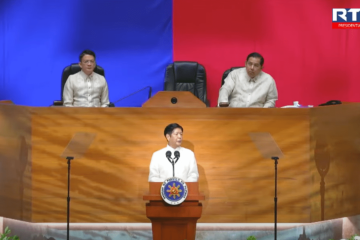
SCHOLARS CHALLENGED the role of philosophy as a tool in addressing societal issues in the contemporary Philippine context despite the absence of a concrete philosophical system from Filipinos in a forum titled “Dalumat 2015: Philosophy as a Catalyst in the Philippine Society” held Tuesday.
Dr. Agustin Martin Rodriguez from the Ateneo de Manila University (ADMU) highlighted the influence of western thought on the way Filipinos use philosophy as a response to social phenomena.
While he admitted that the practices brought by western ideals are advantageous, the former Philosophy department chair at ADMU said they compromised the potential growth of local ideas. “Ang nangyayari sa ating bansa ay ang kanluranin ang nagiging batayan at naisantabi ang katutubo.”
“Mayroon naman kasing pilosopiya sa bansa pero maaaring hindi lang natin ito ma-apply sa Philippine context,” he added.
Meanwhile, Asst. Prof. Mark Joseph Calano, PhD of ADMU discussed the role of change in the development of society, citing that change primarily starts within the self. “Kung gusto mong baguhin ang bayan, simulan mo sa iyong sarili.”
Calano added that change does not only require identification but also action and patience.
He also argued that Philosophy students should find the intersection between their own experiences and that of the philosophers and go beyond what is indicated in texts. “Akala natin kung ano ‘yung sinasabi ni Plato o Aristotle, ‘yun na. ‘Wag sana tayong malimitahan ng kanilang wika,” he said.
Furthermore, Dr. Franze Giuseppe Cortez viewed education as a non-neutral human action as he talked about the elements of Freiran Liberating Pedagogy and their implication to the philosophizing in the Philippines.
Inspired by the works of Brazilian philosopher Paulo Freire, the Philosophy professor at the UST Graduate School considered teachers as “unconscious politicians” for imposing biased opinions in the classroom.
UST instructor Raniel Reyes, on the other hand, tackled how popular music can be a tool to criticize the contemporary society where capitalism prevails.
“Music must not be reduced to mere text…music must become a noise, a musical force that would compellingly yet affirmatively violate the monopolizing potency of the culture industry,” Reyes said.
He added that capitalism also influences popular music. “These songs [Anne Curtis’ Tinamaan Ako and Masculados’ Jumbo Hotdog] are mechanically entrenched in melodies and beats dictated by capitalists that are not really for meaning [or] for reflection, but because…ito lang ‘yung kayang nguyain [ng listeners].”
However, Reyes said that there are still songs that challenge the “bastardization” brought by the capitalism-influenced songs such as Gloc 9’s Walang Natira and Upuan and Dicta Liscence’s Daloy ng Kamalayan.
“By showing us what is false [in the society], music had opened up to different life possibilities,” he said. F – Alyssa Joy Payumo and Mikkah Factor



